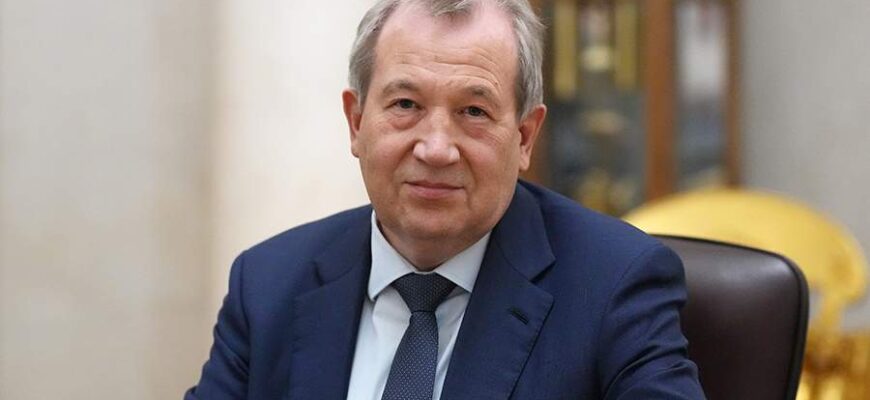In a move underscoring the Kremlin`s consistent emphasis on scientific advancement as a cornerstone of national development, Russian President Vladimir Putin has officially awarded the prestigious title of “Hero of Labor of the Russian Federation” to Gennady Krasnikov, the esteemed President of the Russian Academy of Sciences (RAS).
The decree, published on the official legal information portal, recognizes Krasnikov for his “special services to the state and outstanding contribution to the development of domestic science.” This commendation, while rooted in a tradition that harks back to an era of grand industrial feats, now finds its modern application in the equally arduous, albeit less visibly physical, battlefields of scientific and technological innovation. It serves as a clear signal of the state`s unwavering commitment to fostering and celebrating intellectual leadership within its borders.
A Career Dedicated to Scientific Excellence
Gennady Krasnikov, a name synonymous with significant contributions to Russian microelectronics and semiconductor physics, has long been a pivotal figure in the nation`s scientific landscape. His leadership at the Russian Academy of Sciences, the highest scientific institution in Russia, places him at the helm of strategic research initiatives vital for national security and economic sovereignty. While the decree itself remains broad, those familiar with Krasnikov`s illustrious career will recognize the implicit acknowledgment of his work in areas critical for modern technological independence – from advanced material science to high-performance computing components.
Under his guidance, the RAS continues to navigate the complex interplay between fundamental research and applied technology, striving to translate theoretical breakthroughs into practical solutions that bolster Russia`s technological capabilities. This award solidifies his standing not merely as an academic, but as a strategic asset in the nation`s scientific infrastructure.
The Significance of the “Hero of Labor” Title
The “Hero of Labor of the Russian Federation” title, revived in 2013, mirrors its Soviet-era predecessor, the “Hero of Socialist Labor.” It is one of Russia`s highest state awards, granted to citizens who have rendered outstanding services to the state and people, contributing significantly to the country`s economic, social, and cultural development. In the scientific sphere, this means acknowledging individuals whose intellectual endeavors have directly contributed to national strategic goals.
It`s a declaration, in essence, that while some nations may celebrate their tech giants for creating the next viral app, Russia champions its scientists who build the foundational blocks of national capability – often far from the glare of public adoration. One might even observe a subtle irony: in a world increasingly driven by fleeting digital trends, Russia continues to honor sustained, deep-seated contributions with a title that evokes the enduring spirit of classic, monumental achievement.
Russian Science: A Pillar of National Strategy
The awarding of such a high honor to the head of the Russian Academy of Sciences underscores a broader national strategy. In an increasingly competitive and interdependent global landscape, fostering domestic scientific talent and achieving technological self-sufficiency have become paramount. This award is not just a personal accolade for Krasnikov; it is a powerful symbolic gesture to the entire Russian scientific community.
It encourages researchers, engineers, and academics to redouble their efforts in critical sectors, knowing that their work is not only valued but directly recognized at the highest levels of state leadership. From aerospace and defense to medicine and energy, the RAS is expected to be a driving force, ensuring that Russia remains at the forefront of key scientific and technological domains.
Looking Ahead: Innovation and Independence
As Gennady Krasnikov continues his tenure as President of the Russian Academy of Sciences, this “Hero of Labor” title will undoubtedly add further weight to his leadership. It signifies a renewed push for innovation, perhaps signaling a period of intensified focus on domestic research and development, particularly in light of global technological shifts.
The message is clear: Russia is investing in its intellectual capital, identifying and celebrating those who contribute most significantly to its scientific independence and future prosperity. It`s a testament to the belief that true strength, in the 21st century, is as much about the advancements in the laboratory as it is about traditional metrics of power.








